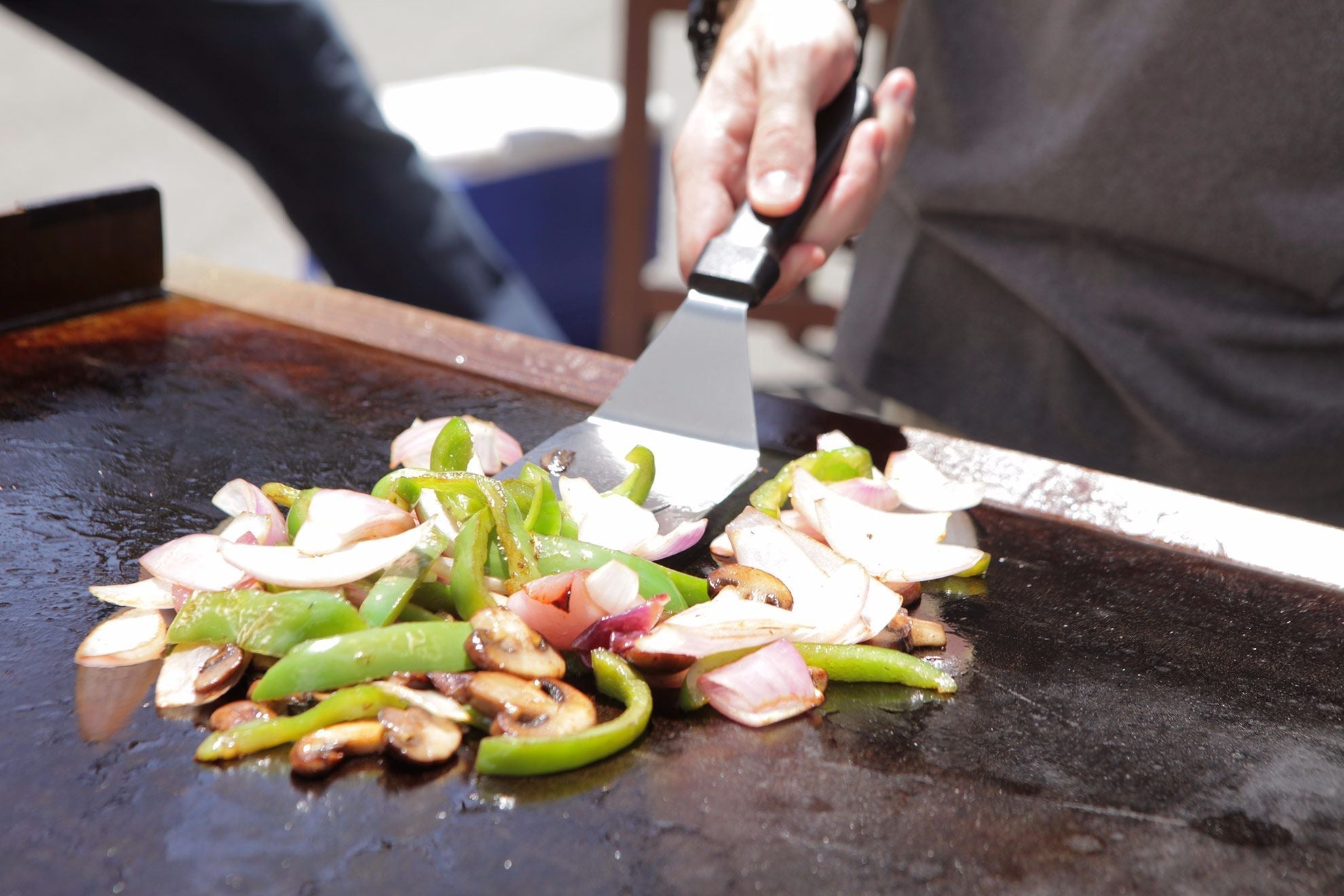Efficient Tips on How to Clean Rust Off Your Griddle
Written By James Morgan
Few things are more frustrating to a barbecue enthusiast than discovering rust on their beloved griddle. The main keyword, 'how to clean rust off griddle', is not just a casual query. Its a call for action to restore your griddle to its former glory, ensuring you can keep flipping delicious burgers, sizzling steaks, and searing veggies without a hitch.

Understanding Your Griddle
Before diving into the cleaning process, its essential to understand your griddle. Whether you are using a cast iron griddle, a steel griddle, or a more modern stainless steel variant, knowing the material will dictate the type of cleaning approach you'll need to take. You can find more information about different types of griddles here.

The Causes of Rust
Moisture is the Culprit
Rust forms when iron reacts with oxygen in the presence of moisture. This means that water and humidity are the primary culprits behind the rusty patches you find on your griddle. Ensuring your griddle is always dry after use is paramount to preventing rust.
Improper Storage
Storing your griddle in a damp or humid environment can also lead to rust. It is essential to keep your griddle in a dry place, preferably inside your house or in a dry shed.
:max_bytes(150000):strip_icc()/alr-tier-3-presto-tilt-n-fold-electric-griddle-ebrockob-003-4-5bd51b26c7ae4b3aa21e28ce2cfb79b6.jpeg)
Tools You'll Need
Before starting the cleaning process, gather the necessary tools and materials:
- Steel Wool or Wire Brush
- White Vinegar
- Lemon Juice
- Baking Soda
- Sandpaper
- Non-Abrasive Cloth
- Cooking Oil (Canola or Vegetable Oil)

Step-by-Step Guide to Remove Rust
Step 1: Scrub the Rust
Using a piece of steel wool or a wire brush, scrub the rusty areas of the griddle. Apply firm pressure and work in circular motions to remove as much rust as possible.
Step 2: Apply a Baking Soda and Water Paste
Mix baking soda and water until you get a thick paste. Apply this paste to the rusty spots and let it sit for about 20 minutes. The baking soda will help break down the rust, making it easier to scrub off.
Step 3: Use Vinegar or Lemon Juice
Both white vinegar and lemon juice are excellent for dissolving rust due to their acidity. Apply either of these directly to the rust and let it sit for a few minutes before scrubbing again.
Step 4: Rinse and Dry
Rinse the griddle thoroughly with water to remove any residual cleaning agents. Ensure it is fully dry by wiping it down with a non-abrasive cloth.
Step 5: Season the Griddle
Finally, apply a thin layer of cooking oil (canola or vegetable oil) to all surfaces of the griddle and heat it up. This will create a protective layer, preventing future rust formation. For more details on seasoning your griddle, check out our seasoning guide.
Preventive Measures for Rust-Free Griddles
Regular Cleaning
Cleaning your griddle after every use is essential. A simple wash with warm soapy water and a thorough drying can go a long way in maintaining a rust-free surface.
Proper Storage
Ensure your griddle is stored in a dry place, preferably indoors. If you need to store it outside, consider investing in a waterproof cover.
Use a Protective Layer
Applying a thin layer of cooking oil after each use can help create a barrier against moisture and prevent rusting.
Expert Tips for Maintaining Your Griddle
Maintaining a griddle in optimal condition requires more than just cleaning and storage. Here are some expert tips to keep your griddle functioning like new:
- Inspect it regularly for signs of rust or wear and address any issues immediately.
- Season it periodically, even if its not rusty, to maintain its non-stick properties and prevent rust.
- Avoid using harsh cleaning chemicals that can damage the surface of your griddle.
Conclusion
Knowing how to clean rust off your griddle can save you time, effort, and a lot of frustration. With the right tools, materials, and steps, you can restore your griddle to its rust-free state, ensuring every barbecue session is a success. Remember, proper maintenance and preventive measures are the keys to a long-lasting, high-performing griddle.
For more tips on how to care for your griddle, check out our cleaning guide.
Frequently Asked Questions
How often should I season my griddle?
Its best to season your griddle every few months or after every thorough cleaning to maintain a protective layer.
Can I use dish soap on my griddle?
Yes, using mild dish soap with warm water is fine. Avoid harsh chemicals as they can damage your griddles surface.
What's the best oil to use for seasoning a griddle?
Vegetable oil or canola oil are popular choices for seasoning. They have high smoke points and offer excellent protection.
As an Amazon Associate, I earn from qualifying purchases.



